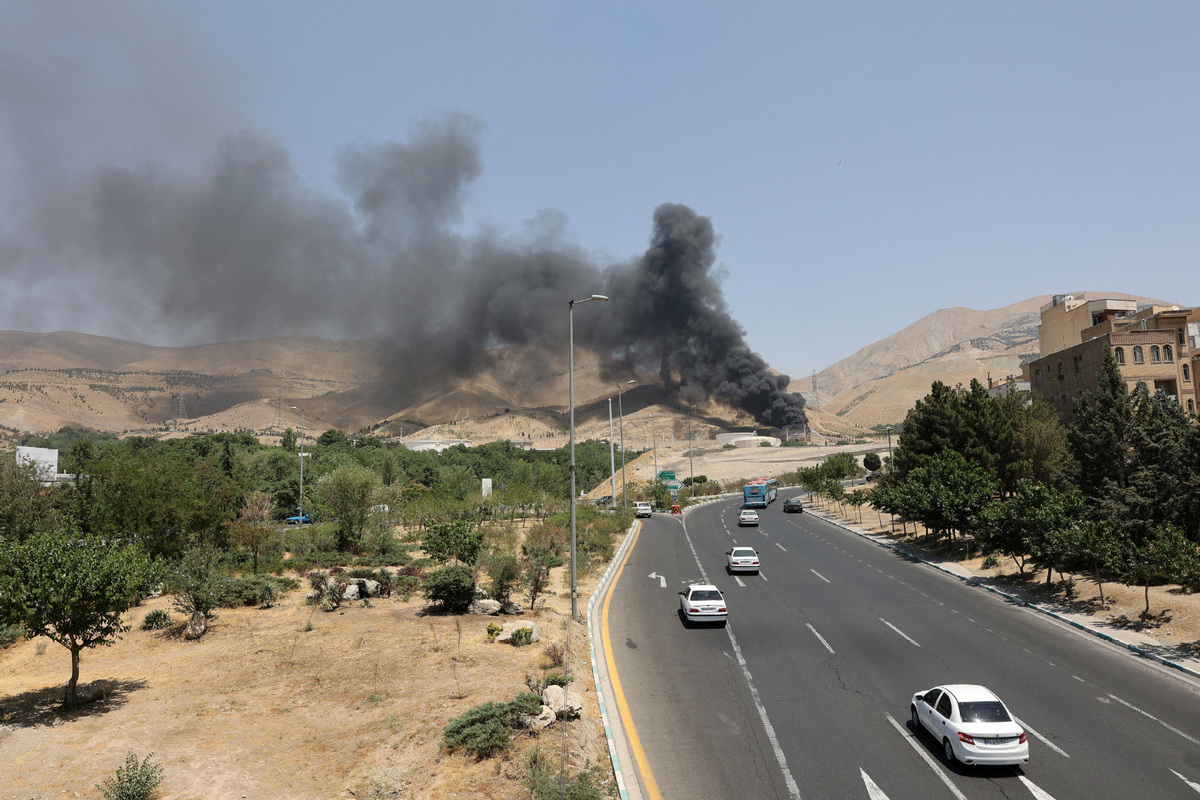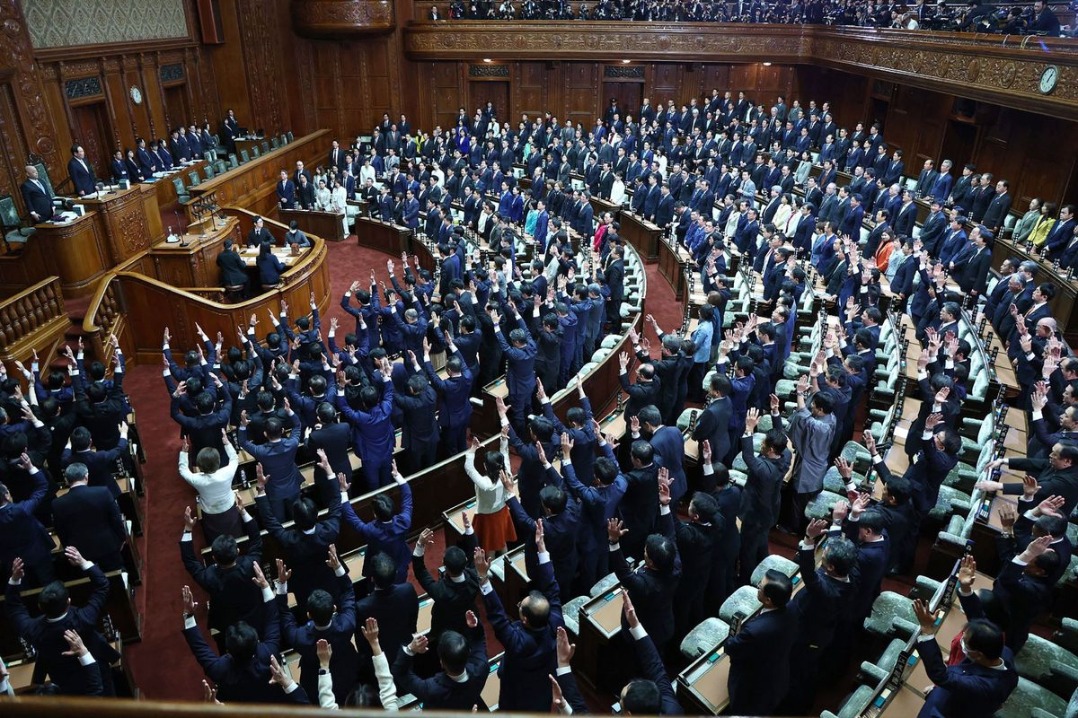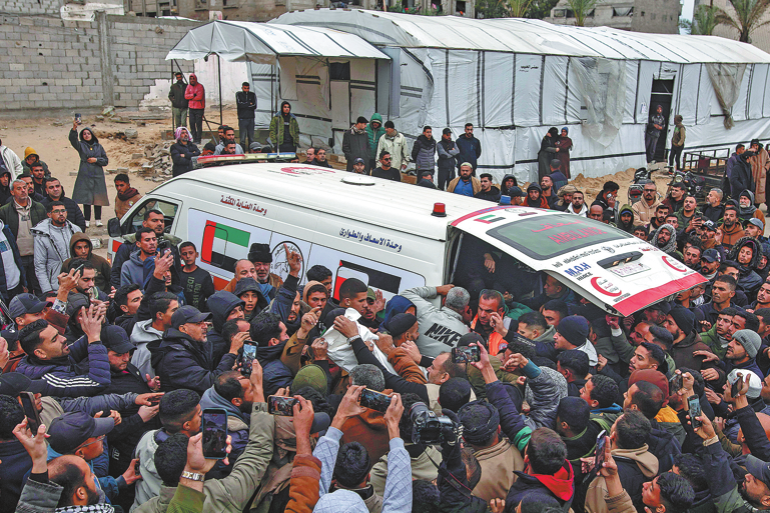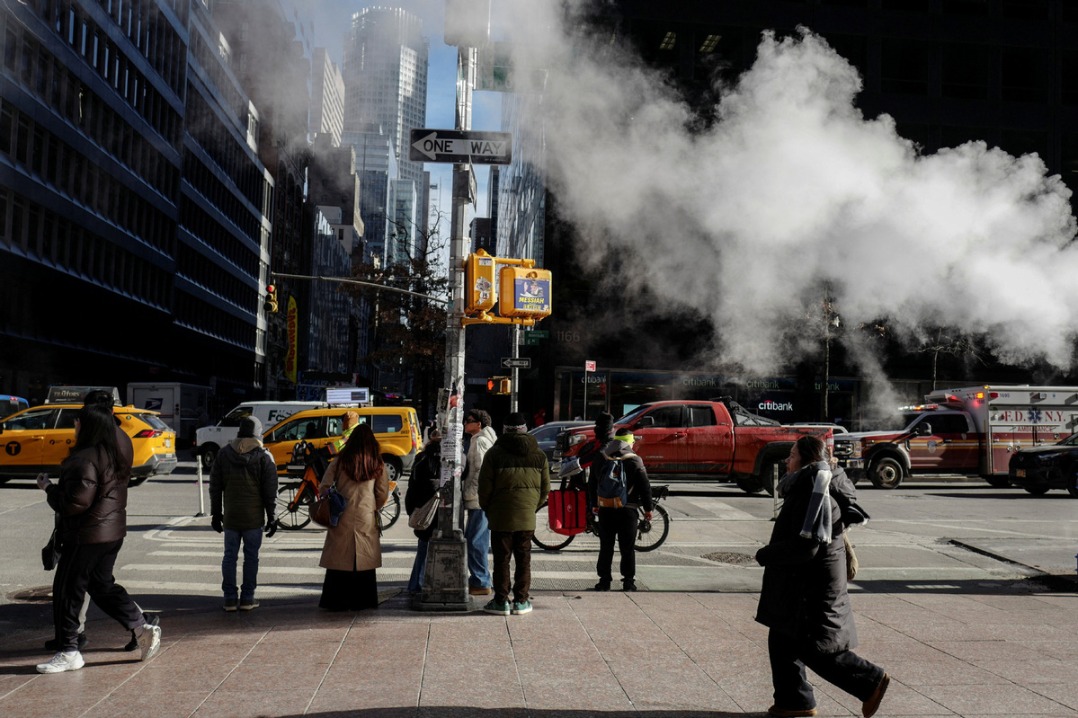Intensified Mideast conflict spurs calls for de-escalation


The hostilities between Israel and Iran escalated on Monday, with both countries trading strikes for the fourth consecutive day and threatening to step up attacks, fueling wider concerns of a protracted conflict engulfing the Middle East.
Iran fired a new wave of missiles targeting Israel, killing at least five people, while Israel said it had destroyed more than 120 surface-to-surface missile launchers in central Iran. The Iranian side also indicated its possible withdrawal from the Treaty on the Non-Proliferation of Nuclear Weapons if the situation at its nuclear sites worsens.
At a news conference on Monday in Beijing, Chinese Foreign Ministry spokesman Guo Jiakun said, "If the conflict continues to escalate, other countries in the Middle East will inevitably bear the brunt."
"We call on parties to immediately take measures to ease tensions, prevent the region from spiraling into greater turmoil, and create conditions for returning to the right track of resolving issues through dialogue and negotiation," he added.
The latest conflict began on Friday when Israel launched an assault on Iran's military leaders and uranium enrichment sites, which Israel said was necessary to prevent its longtime adversary from getting any closer to building an atomic weapon.
Iran, however, maintains that its nuclear program is peaceful. On Monday, Iranian President Masoud Pezeshkian urged citizens to "stand strong against this genocidal criminal aggression with unity and coherence".
Iranian Foreign Ministry spokesman Esmaeil Baghaei said the nation's parliament is preparing a bill to leave the nonproliferation treaty, and Teheran remains opposed to developing weapons of mass destruction.
On Sunday, Israeli Prime Minister Benjamin Netanyahu told Fox News that Israel is willing to call off the campaign if Iran agrees to dismantle its nuclear program. "We've destroyed the main facility in Natanz. ... And if we need to, we'll add whatever is needed," he said.
At an urgently convened session on Monday in Geneva, Switzerland, Director General of the International Atomic Energy Agency Rafael Mariano Grossi briefed the board about the situation at Iran's nuclear sites in Natanz, Fordow, Khondab, Bushehr and Isfahan, which all came under Israeli attack. At the Natanz site, there has been "no external radiological impact to the population or environment" yet, he said.
On Saturday, Chinese Foreign Minister Wang Yi said that Israeli attacks on Iranian nuclear facilities have set a dangerous precedent with potentially catastrophic consequences. He also called for a de-escalation of tensions and talks to end the conflict.
cuihaipei@chinadaily.com.cn

































